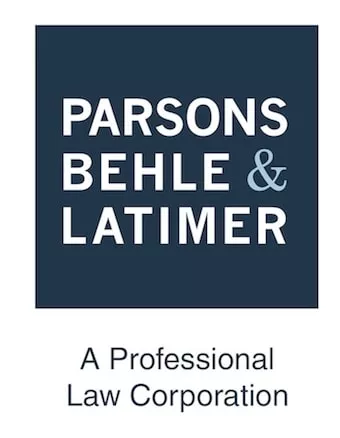- with readers working within the Healthcare industries
Employment Law Update
By Elena T. Vetter
Executives and Employees Disagree on the Future of Remote Work
According to a recent survey conducted by KPMG, 64% of CEOs predict that their workforces will return to full-time in-office work by the end of 2026—and a whopping 87% of CEOs say they are likely "to reward employees who make an effort to come into the office with favorable assignments, raises or promotions." Employees, for their part, believe remote work is here to stay. In fact, Gallup reports that 50% of American employees say they "can do their jobs from home," and the vast majority of employees—that is, nine out of 10 workers—say they "don't want to come to the office five days a week."
That disconnect will likely lead to discontent. What's more, it could also be a path to liability. Employers have long known that recruiting and retaining good talent may require them to provide flexible work arrangements. But employers should also keep in mind that federal courts are weighing in on the propriety of remote-work accommodations under the ADA—and concluding that these accommodations may well be reasonable, if in-office attendance is not an essential function of a given job. As organizations and HR professionals work to bridge the gap between executives and employees on remote-work issues, it will be critical to keep the essential-function inquiry top of mind.
Karla Gilbride Appointed as EEOC General Counsel
On Oct. 17, 2023, the United States Senate confirmed Karla Gilbride as general counsel for the Equal Employment Opportunity Commission (EEOC). Gilbride will be the EEOC's first Senate-confirmed general counsel since the prior general counsel's dismissal in March 2021. Gilbride worked as a plaintiffs' attorney before joining the administrative agency. She will be the EEOC's first blind general counsel. In her new role, Gilbride will assist with executing the EEOC's Strategic Enforcement Plan, which was issued on Sept. 21, 2023, and will help to implement the EEOC's harassment guidance, when it is ready to be issued. As we covered in our prior Employment Law Update, the guidance is currently in the public notice-and-comment period and has yet to be finalized.
NLRB Releases Data for Fiscal Year 2023
On Oct. 13, 2023, the National Labor Relations Board (NLRB) released its case filing data for fiscal year 2023, which runs from Oct. 1, 2022, through Sept. 30, 2023. The data reflects that representation petitions for union elections were up slightly this year from last year. The number of unfair labor practice charges (complaints that a party violated the National Labor Relations Act) also increased 10% from last year. While this represents continued acceleration of these charges, the growth rate is still only about half as much as the 19% increase the NLRB saw from fiscal year 2021 to fiscal year 2022. The Board's recent decisions will likely continue to escalate the number of charges and union election petitions in the year to come.
California Bill Powers Union Pitch
The recently issued NLRB statistics reflect at least one major union pitch from the past year: in April, Major League Baseball players and owners voted to ratify a historic collective bargaining agreement covering Minor League players. Later that month, more than 99% of Minor League players voted to ratify the agreement.
In the next step of the process, the California Legislature unanimously passed SB 332, which grants a narrow exemption from state labor laws for California-based Minor League players. The legislation was specifically designed "to carry out the collective bargaining agreement" and provides that certain provisions of California wage and hour law do not apply to Minor League Baseball players covered by the collective bargaining agreement. California Governor Gavin Newsom signed SB 332 into law on Oct. 13.
Elena T. Vetter is a member of Parsons Behle & Latimer's Litigation practice team. Elena focuses her practice on complex litigation matters and advises clients on issues related to employment law, antitrust and competition, commercial litigation, First Amendment and intellectual property disputes. To contact Elena, please call (801) 532-1234 or send an email to evetter@parsosnbehle.com.
USCIS Proposes New H-1B Lottery Selection To Address Improper Gaming of System
By Lewis M. Francis
The H-1B is the main visa sought by U.S. employers for U.S. college-educated foreign national employees, many of whom they already temporarily employ through their post-graduate one-year Optional Practical Training authorization. However, the H-1B category is limited in numbers, and therefore subject to an annual lottery. While historically there has been an average 50% chance of being selected for H-1B processing, that number fell to less than 20% last year due to gaming of the system by a number of tech and consulting companies. As a result, the U.S. Citizenship and Immigration Services (USCIS) has proposed a new rule changing how it conducts the annual H-1B selection process to reduce its misuse and fraud. 2023-23381.pdf (federalregister.gov). Under the current system, the more H-1B registrations that companies submit on behalf of the same individual, the higher chance that individual will be selected in the lottery. Under the new proposal, each unique worker with an H-1B registration filed on their behalf will be entered into the selection process only once, regardless of the number of registrations submitted for them. This would improve the chances that a legitimate registration would be selected, and eliminate the improper practice of submitting multiple registrations for the same worker to increase the chances of selection. The new USCIS rule is subject to a 60-day comment period before implementation, and interested parties should submit comments by Dec. 22, 2023, at https://www.regulations.gov. Hopefully, the new USCIS rule will be in place by the time of next year's H-1B lottery registration, which takes place on April 1, 2024.
Lewis M. Francis specializes in providing business and employment-based immigration solutions for a global marketplace. Mr. Francis is experienced in obtaining the necessary immigration visa approvals for specialized temporary employees, including those qualifying for H-1B, E-3, TN, O-1 or L-1A and L-1Bs. He has considerable experience securing U.S. permanent residency (green card applications) for immigrant workers, including through PERM Labor Certification in the EB-2 and EB-3 classifications as well direct applications in the EB-1, Multinational Executive/Manager, and National Interest Waiver (NIW) categories.
Question Corner
The Importance of Confidentiality Agreements
By Patrick Ngalamulume
Q. We are developing a confidentiality agreement for a client with over 200 employees. Are there any specific provisions we need to be aware of as we develop this template?
A. Confidentiality agreements are one of the most important employee agreements available under the law. Idaho law, and similar laws in other states, acknowledge that companies have legitimate business interests that must be protected. It is vital for companies to have the ability to protect their interests when employing individuals who cultivate client relationships on their behalf and have access to confidential information and trade secrets during the course of employment. Accordingly, Idaho permits employers to require employees to sign confidentiality agreements to ensure these legitimate business interests are protected.
Employee confidentiality agreements generally contain provisions related to both confidentiality and non-competition. In these contracts, employees agree to keep confidential sensitive company information and trade secrets learned during the course of employment and otherwise not to compete against the company upon separation from the company. It is important to keep in mind that contracts of this nature should be limited to a specific geographical region and to a period of time in which they may be enforced.
When drafting the non-competition provisions within employee confidentiality agreements, it is not necessary to expand the non-competing region to include an entire state. Rather, the non-competing region should include only the geographical areas where the company is actually transacting business. Similarly, the duration of enforceability must be limited to a reasonable period of time. Idaho statutes provide that 18 months or less is a reasonable amount of time to limit competition. Thus, it is unlikely that, without additional consideration, Idaho courts would enforce non-competition periods that exceed this guideline.
The content of this article is intended to provide a general guide to the subject matter. Specialist advice should be sought about your specific circumstances.




